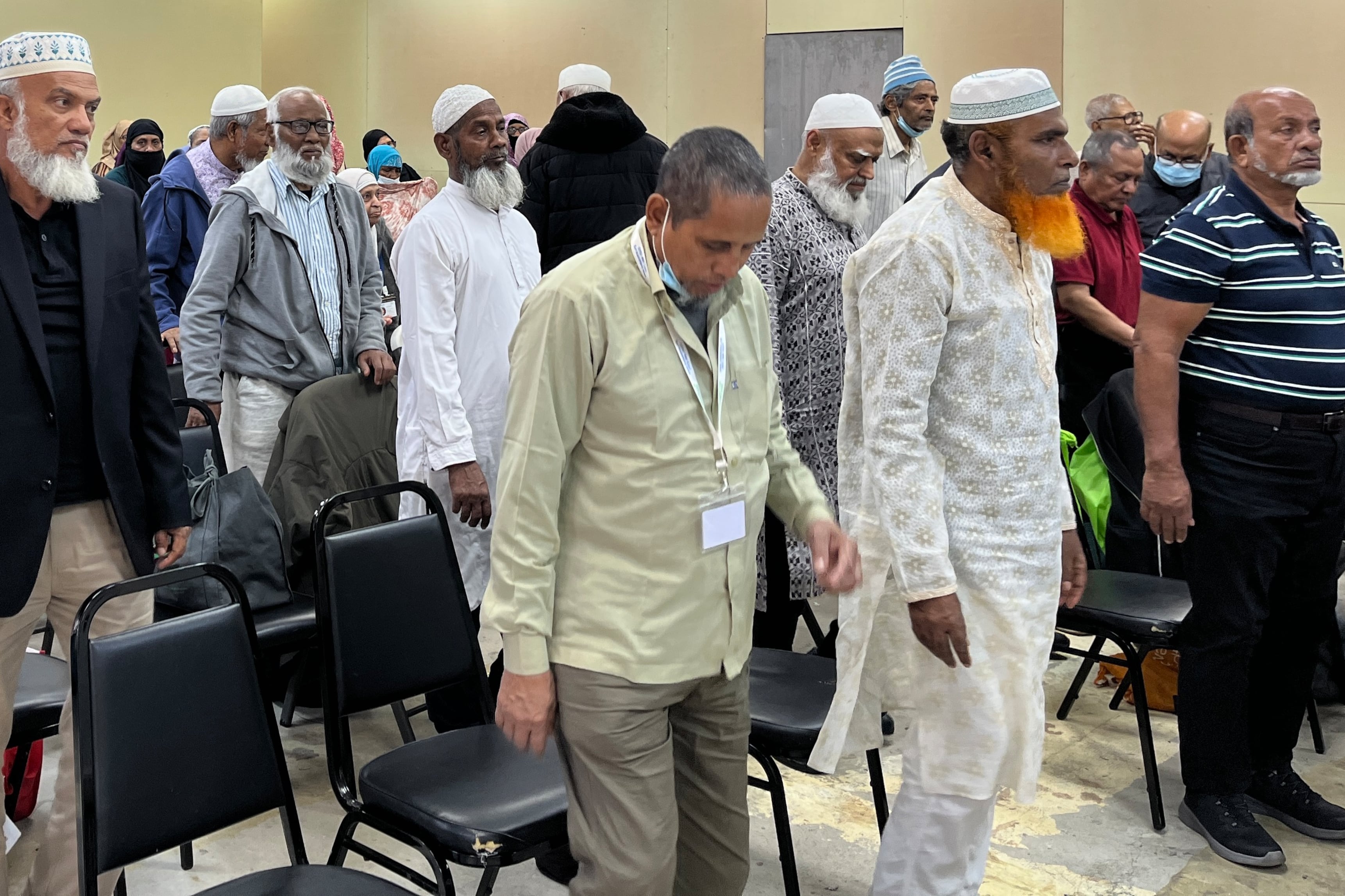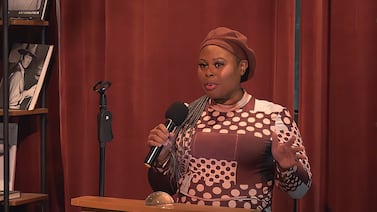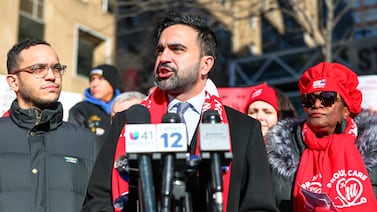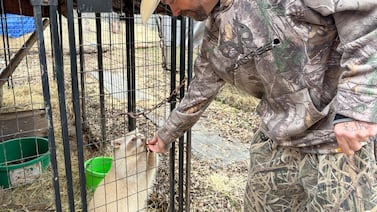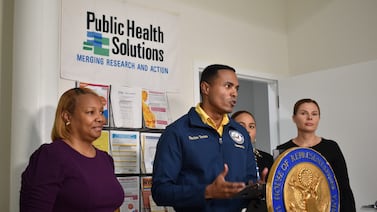Public health, explained: Sign up to receive Healthbeat’s free New York City newsletter here.
Vasundhara Kalasapudi, known as Dr. K, a psychiatrist specializing in geriatrics, lost her father to vascular dementia. When she found out about his diagnosis, she wanted to bring him to New York City from India. She called the city’s department of health, then state and federal agencies, looking for resources, but she kept hearing the same response.
“They said, ‘Dr. K, we know what you are looking for, but, you know, we don’t have any curry-serving facilities,’” she recalled.
Years later, she would create some: India Home, a nonprofit senior care provider serving South Asian and Indo-Caribbean immigrants. Kalasapudi serves as executive director. Now the centers’ cultural sensitivity has made it a target. India Home has lost $1 million in federal funding to support a new affordable housing project it is building in Jamaica, Queens.
The January decision was tied to an executive order signed by President Donald Trump, which aimed to eliminate all programs and policies based on race or sex, including those promoting racial equity and attempts to address disparities and cultural differences.
“We cannot say we are not culturally sensitive. We will continue to serve halal and vegetarian meals, and run our regular activities because we are committed to our core mission,” Kalasapudi said. “We’re hopeful that our city and state officials understand the challenges happening at the federal level and continue to support our services.”
India Home operates five senior care centers with over 1,000 members and two co-living homes across Queens. It provides services that respect the 25 different languages their clients speak, their dietary habits, and cultural norms, while helping seniors access public health benefits such as transportation and housing. With both co-living homes at full capacity and waiting lists to get in, the new project would add 94 units.
The organization was awarded $2.5 million in federal funding for the 2024 and 2025 fiscal years to support the $70 million development, along with the state, investors and philanthropists. India Home purchased the properties, and has identified a developer, architect, and a legal firm.
But in late January, India Home received a call from New York Democrat Sen. Chuck Schumer’s office informing them that the second year of federal funding would be cut.
Kalasapudi describes the 2007 founding of India Home as a story of three daughters. She was looking for a place where her father would feel at home. Then she noticed one of her colleagues would drop her mother, who has dementia, at a nursing home while attending medical conferences. When her colleague returned, her mother would ask, “Why did you leave me?”
Another friend, who trained in geriatric psychiatry with her, had to quit her job for two years to care for her father with Parkinson’s disease. “That’s when I realized that even as doctors, we struggled to find the right support,” she says. “So what about regular people, especially those who don’t speak English? Where do they turn for help?”
Mohammad Razvi, CEO of the nonprofit Council of Peoples Organization, which has helped over 40,000 South Asians across New York City through food pantries and older adult services, emphasizes the importance of culturally sensitive programming to ensure clear communication.
“Even when a translator is available, things can get lost in translation due to a lack of cultural competency, and that’s what we’re facing,” Razvi said.
Homelessness remains one of the most pressing issues in New York City, especially for its growing aging population. The city saw a 250% increase in homeless people ages 55 and older, and a 300% increase of those 65 and older, between 2004 and 2017, according to a study by the New York State Health Foundation. The same study projected that by 2030, the homeless population over 55 and 65 could triple again.
“The housing projects are helping the community with long-term solutions,” Kalasapudi said. “A lack of housing or food leads to more hospitalizations. So this initiative isn’t just about getting seniors into housing, it’s about giving them stability, improving their health, and keeping them out of shelters. That has a ripple effect, not just on the budget, but on the entire community.”
At the Jamaica Muslim Center-India Home on a recent morning, about 50 seniors gathered in the room above the prayer room for an exercise class. Some standing and others seated, they engaged in light movements, rotating their arms in wide circles and moving their hips from side to side while mingling. The class has become a part of their daily routine.
Kavita Sivaramakrishnan, an associate professor of sociomedical sciences at Columbia University’s Mailman School of Public Health, criticized the administration’s attack on DEI efforts as anti-immigrant.
“Once migrants have settled and are tax-paying citizens, or dependents of tax-paying citizens, then even immigrants need to be integrated in their old age. I think it’s a social responsibility,” she said. “It’s very selfish to think that you could take their cheap labor when they were young and that you don’t owe them anything in their old age.”
Kalasapudi said that when they apply for grants for India Home, they extol the cultural sensitivity they bring to senior care services – and will keep doing so.
“Honestly, we’re not making any changes to the services we provide or how we hire staff,” she says. “We’re not changing anything, because it’s important that our team can speak the different South Asian languages our seniors speak. It is important for them to connect with the seniors.”
This story was produced in partnership with the Health & Science Reporting Program at the Craig Newmark Graduate School of Journalism at CUNY.

